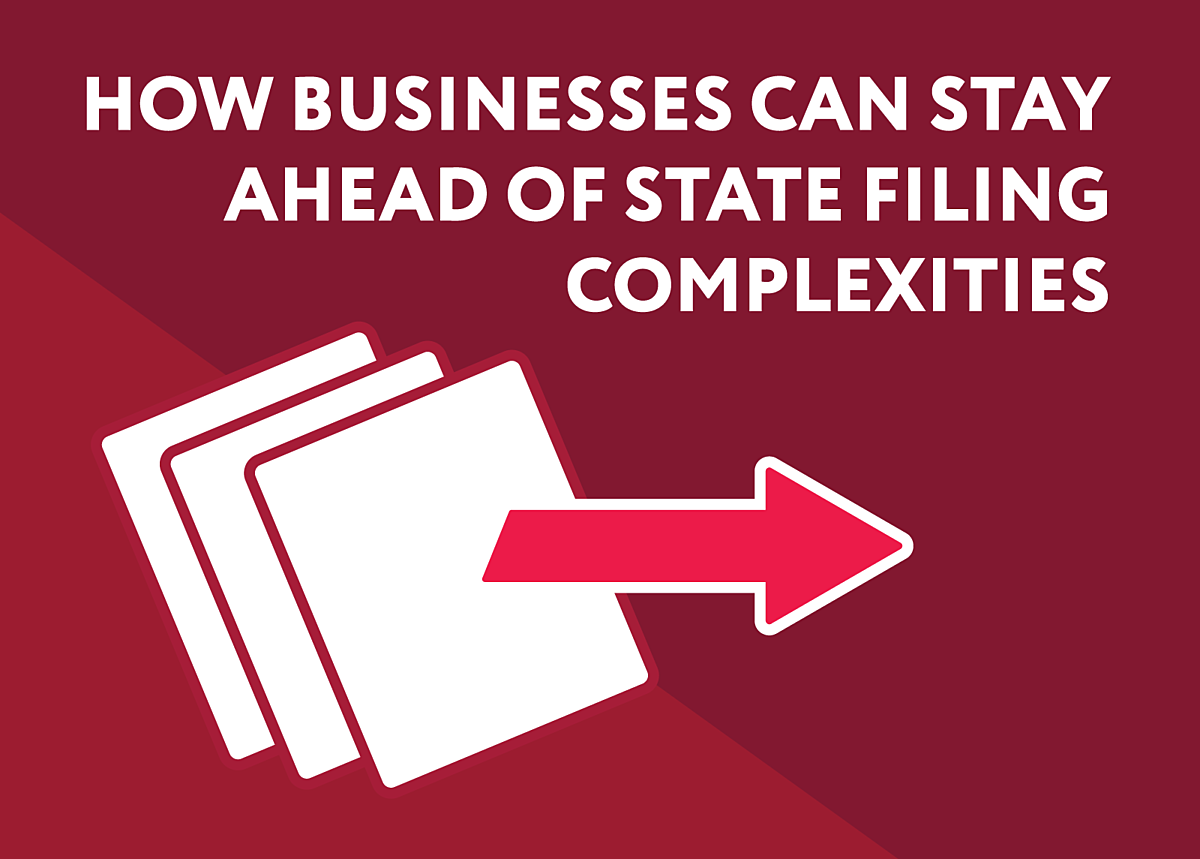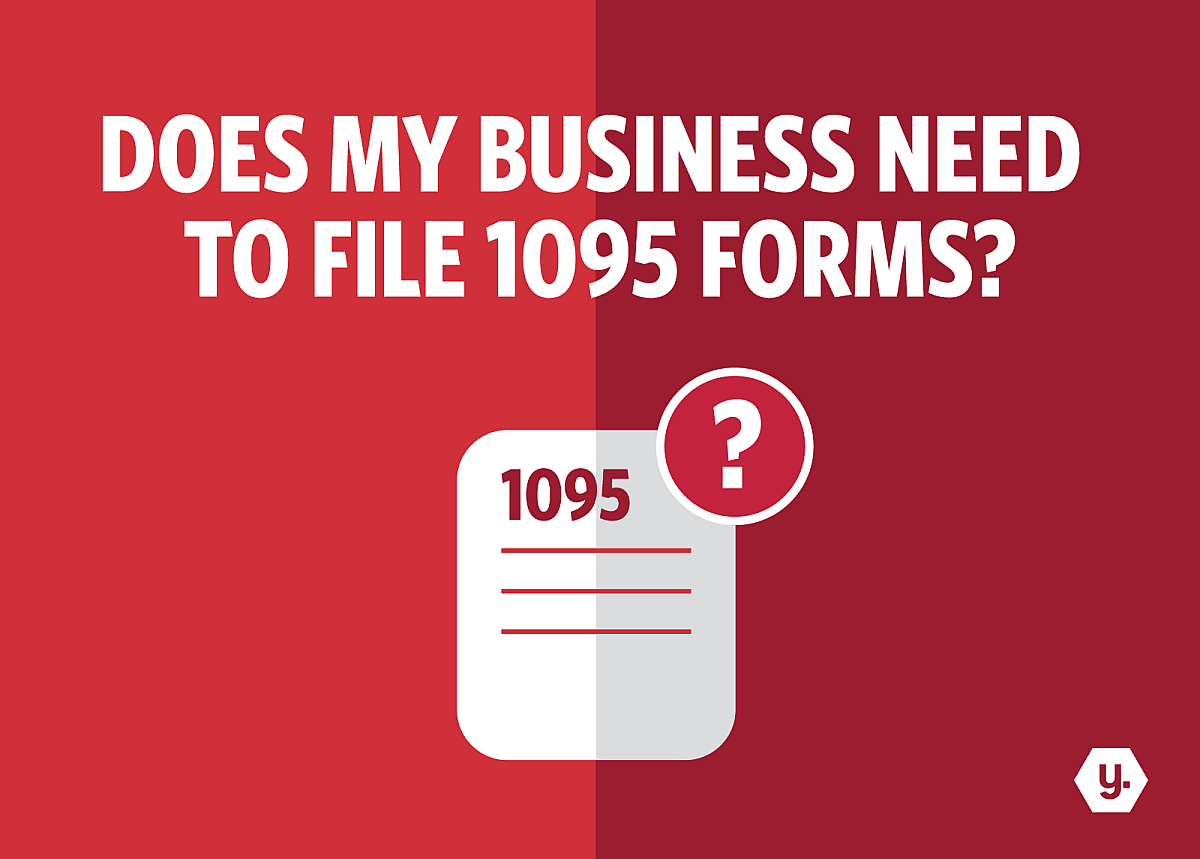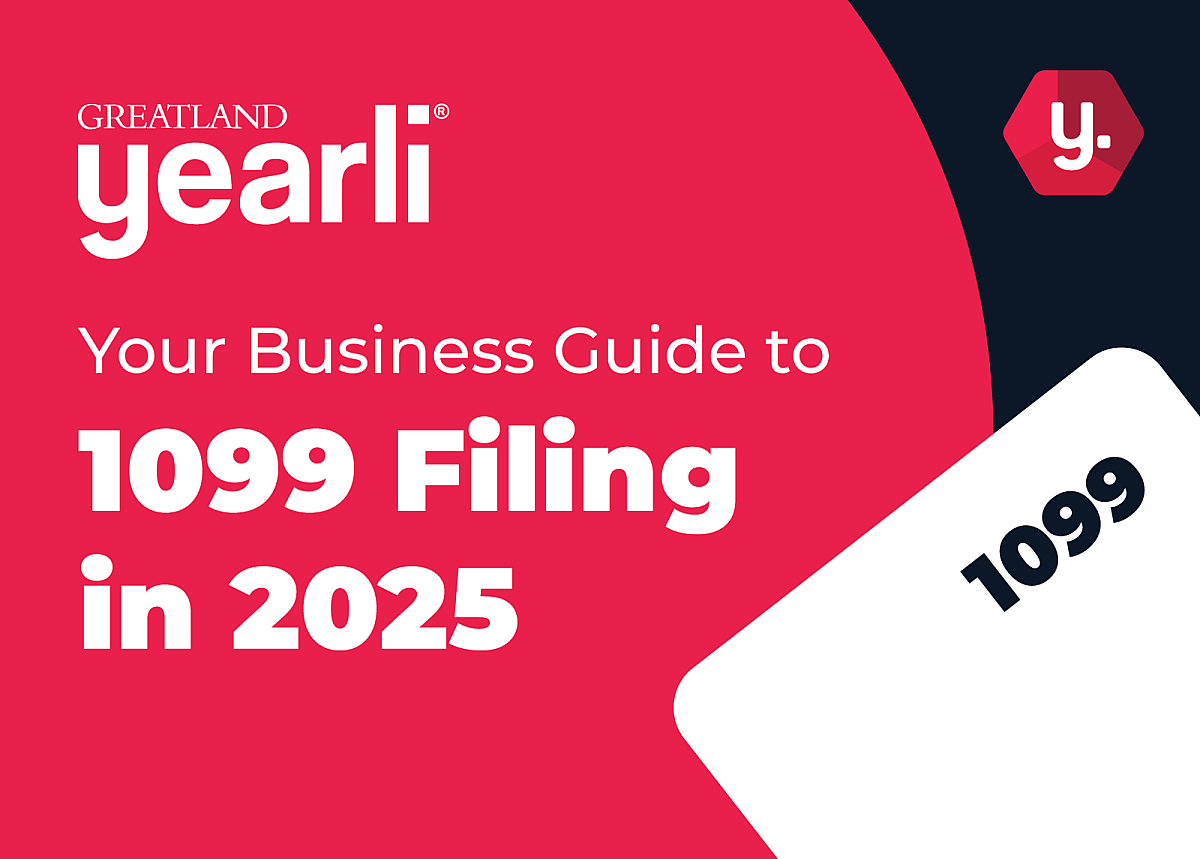
How Businesses Can Stay Ahead of State Filing Complexities
Most states have W-2 and 1099 filing requirements that are separate from federal filing requirements, which can be confusing and onerous for some businesses to navigate. Too often businesses mistakenly assume that filing to the federal government is enough to keep them in compliance. Unfortunately, that is not true and can lead to penalties and fines.
Now throw into the mix a rise in individual health coverage mandates at the state level and the new Form 1099-NEC. All of this leads to growing complexities in state filing.
That’s why it is important for businesses to know their state specific requirements. Let’s take a closer look.
States and the New Form 1099-NEC
One significant change for tax year 2020 is the new Form 1099-NEC. The 1099-NEC form separates out nonemployee compensation from other sections of the 1099-MISC, and imposes a new filing deadline of Feb. 1, 2021.
Now, any business, regardless of size, that pays at least $600 for services performed in the course of their trade or business by a person who is not their employee is required to file Form 1099-NEC.
What is especially important to note is that e-filed Form 1099-NEC will not be forwarded to states. What does this mean?
In September, the IRS released its annual Publication 1220, which revealed that the 1099-NEC will not be included in the IRS 1099 Combined Federal/State Filing Program (CF/SF).
Under the CF/SF Program, the IRS forwards data from a number of key forms to the appropriate states, but it will not do so for Form 1099-NEC. As a result, businesses could miss key state filing deadlines, leading to unexpected penalties. This means 1099-NEC filers will need to find a state filing option separate from the CF/SF Program.
It is important to file on time, with the correct information, to avoid penalties. The amount of the penalty, which can be as high as $280 per information return, is based on when the filer submits a correct information return. If the failure to file a correct information return is due to intentional disregard, the penalty is at least $560 per information return with no maximum penalty.
Benefits of Direct State Filing vs. CF/SF
The easiest and most cost effective way to ensure compliance with filing requirements is to leverage a comprehensive solution that will file the forms to the IRS, applicable state agency, and send copies to recipients.
Because the CF/SF Program has many limitations, it is important to leverage a solution that supports a direct filing method. This allows businesses to rest assured that the data is received by the state agencies in a timely fashion, and meets all state filing deadlines and reconciliation requirements.
Only a subset of states participates in the combined federal/state filing program, and some states have recently dropped support of the combined federal/state filing program altogether because it no longer meets their needs. All states, on the other hand, support direct state filing.
Furthermore, due to the prevalence of fraud, states want data sooner in order to match this data with the individual income tax returns before issuing any refunds. The combined federal/state filing program can take months to deliver the data to states, which does not help with fraud prevention.
That’s why it is important to consider a solution like Yearli by Greatland, a comprehensive online W-2 and 1099 reporting platform. Yearli.com will help identify an employer’s state filing requirements, and also support reconciliation forms for states. It’s fast too, and users will receive the exact date and time the data was sent to the state. With Yearli.com’s direct state e-file, filing to state agencies is accurate, complete and timely.
A Rise in State Individual Mandates
Separately, a growing number of states are implementing individual health coverage mandate laws. This is adding yet another layer of complexity in state filing requirements. Employers with a recipient in one of these states must comply with new state filing requirements or, in some cases, risk a penalty.
Under the Tax Cuts and Jobs Act, the amount of the federal individual shared responsibility payment was reduced to zero for months beginning after Dec. 31, 2018.
The individual mandate at the federal level, which took effect in 2014, required most people to obtain health insurance or pay a tax penalty. It proved to be one of the ACA’s most controversial provisions, and tax legislation enacted in December 2017 effectively repealed that requirement, starting in 2019.
Now some states are employing their own type of individual mandate. Complying with the new state filing requirements provides a way to prove to the state agency whether a person has proper health care coverage or not. If covered, the individual will avoid being assessed the individual shared responsibility payment.
Many individual mandates are still developing, but here’s a quick rundown of the activity to date, as outlined by insurance broker Marsh & McLennan Agency (MMA):
- Washington D.C.: For tax year 2019, Washington D.C. implemented an individual mandate. No employer penalty has been specified.
- New Jersey: For tax year 2019, New Jersey implemented an individual mandate. No employer penalty has been specified.
- California: For tax year 2020, California passed a law requiring individuals to have healthcare coverage. The employer penalty for not filing in California is $50 per person.
- Rhode Island: For tax year 2020, Rhode Island is requiring individuals to have healthcare coverage. No employer penalty has been specified.
- Vermont: The state has an individual mandate as of 2020; however, there is no penalty for non-compliance at this time and no employer penalty.
- Massachusetts: The state has had an individual mandate since 2006. To avoid a double hit, Massachusetts had not been assessing the penalty on people for whom the federal penalty applied; however, starting in 2019, the state’s penalty applies in full. Employers with self-insured coverage are subject to a $50 penalty for each individual it failed to provide with a Form MA 1099-HC. This is capped at $50,000 per year.
Other states are considering individual mandates as well, but no definitive information was available as of press time.
Leveraging an all-inclusive solution like Yearli.com is one of the easiest and most cost effective way for businesses to ensure that all of their ACA filing requirements are met this filing season. When filing through Yearli.com, forms can be sent directly to states for no additional cost.
Key Takeaway
Keeping pace with regulatory changes and ensuring state filing compliance can be challenging. That’s why it is important to leverage an all-inclusive W-2, 1099 and 1095 filing program. Greatland’s Yearli platform will help identify your specific requirements. Through Yearli.com, all of the data is sent to the appropriate state agency in the required format with just a few clicks. And throughout the entire process, Yearli.com will also provide updates on the status of the filing — a service unique to Yearli. The time to act is now.
Latest News
-
 November 25, 2025
November 25, 2025New Alternative Furnishing Method for Forms 1095-B and 1095-C Comes with Complexities
The IRS has updated the Affordable Care Act (ACA) reporting process for Forms 1095-B and 1095-C. These changes aim to reduce administrative costs and simplify reporting, but they also create new compliance challenges for employers and health insurance providers.Read More -
 October 8, 2025
October 8, 2025Your Business Guide to 1099 Filing in 2025: Deadlines and Compliance Tips with Yearli
Businesses must prepare for 2025 IRS 1099 filing by understanding key deadlines for Forms 1099-NEC and 1099-MISC and leveraging e-filing tools like Yearli to stay compliant. This guide outlines important dates, recent IRS updates, and practical tips to avoid penalties and streamline the filing process.Read More -
December 30, 2024
Understanding Form 1099-DA: A Comprehensive Guide to Filing for Digital Asset Transactions
As the use of digital assets like cryptocurrencies and non-fungible tokens (NFTs) continues to grow, so does the need for clear tax reporting guidelines. To address this, the IRS has introduced Form 1099-DA, which will be required starting in 2025.Read More
